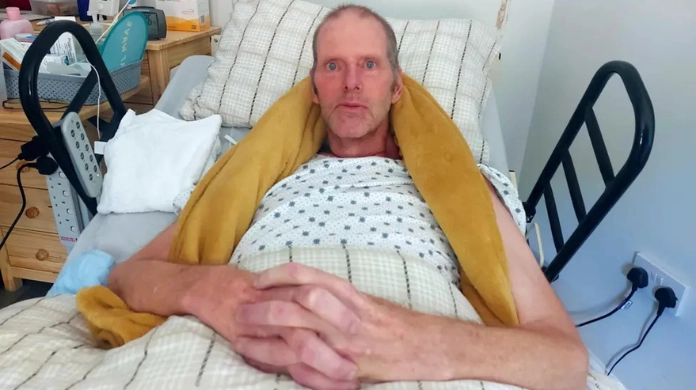
Exhausted Patient Stops Life-Saving Medication Amid NHS Care Struggles
Tim Hull, a 56-year-old man with a rare neurological condition, has made the profound and difficult decision to stop taking his life-saving medication due to exhaustion from fighting for NHS care. His health has rapidly declined in recent years, and he now describes his quality of life as “very, very low.” His case highlights significant challenges within the NHS in providing consistent, joined-up care for patients with complex needs.
Tim Hull’s Health Crisis and Care Challenges
Sudden Health Decline and Medication Halt
Tim Hull’s neurological condition requires ongoing, life-extending medication. However, after facing persistent barriers and delays in accessing NHS care, he chose to cease the treatment, prioritizing comfort over continued struggle.
The rapid deterioration in Tim’s health over the past two years has left him increasingly frail and reliant on strong pain relief medication to manage his symptoms. His decision underscores the unbearable toll that systemic healthcare obstacles can exert on vulnerable patients.
Emotional and Physical Toll on the Patient
Tim shared,
“My quality of life is very, very low… During the time I have left, I just want to be as comfortable as possible.”
He described the ongoing fight for NHS assistance as an “exhausting battle,” steeped with fear of the unknown regarding the future of his care decisions.
Tim’s situation reflects a broader issue of patient fatigue and mental strain when navigating complex healthcare systems.
NHS Response and Systemic Issues
NHS Local Trust and Integrated Care Board Initiatives
The NHS local trust involved emphasized its commitment to providing joined-up, multidisciplinary care, particularly for patients with complex conditions like Tim’s. They stated that teams regularly assess patient needs and maintain processes ensuring patients feel heard and supported.
The NHSfordshire Worcesters Integrated Care Board (ICB) also highlighted their ongoing evaluation of care routines aiming to guarantee safety and quality, alongside protocols to address concerns and learn from incidents.
Department of Health and Social Care’s Position
The Department of Health and Social Care (DHSC) condemned the gaps that left Tim without adequate care, calling this situation “unacceptable.” They reaffirmed their commitment to universal, high-quality NHS care and pointed to a 10-year government health strategy designed to improve community-based services.
This strategy includes an additional £100 million investment into hospice and end-of-life care services to better support patients like Tim.
Broader Implications: NHS Care System Under Scrutiny
Systemic Resource and Access Challenges
Tim’s case has sparked wider discussions about systemic challenges within the NHS, including resource constraints, extensive wait times, and difficulties coordinating care for patients with complex or rare conditions.
Online conversations and public debates reflect a growing concern that certain patients may be falling through the cracks of the healthcare system.
Patient Autonomy and Advocacy
Tim’s vocal stance on wanting autonomy over his care decisions highlights growing patient demand for involvement and respect in healthcare planning. His experience reveals the emotional burden carried by those navigating chronic illness amid bureaucratic healthcare systems.
Support and Resources for Patients
Amid this narrative, resources such as the BBC Action Line have been underscored as valuable support mechanisms for anyone facing distress related to medical or mental health challenges.
Looking Forward: Addressing the Gaps
The Need for Integrated and Compassionate Care
Tim Hull’s story signals an urgent need for NHS improvements, particularly in coordinating multidisciplinary care and ensuring timely access for patients with complex needs.
While institutional commitments exist, translating policies into effective, patient-centered care remains a critical challenge.
Investment and Strategic Planning
The DHSC’s recent health strategy and funding increase for hospice and end-of-life care represent important steps. However, further action is needed to prevent cases like Tim’s from recurring and to restore patient trust in the system.
Tim Hull’s decision to stop life-saving medication after an exhausting battle with NHS care shines a light on the ongoing strains within the healthcare system regarding support for vulnerable patients. His plight calls for reinforced healthcare coordination, enriched patient support, and accelerated delivery of high-quality services to ensure no one faces a similar struggle alone.





